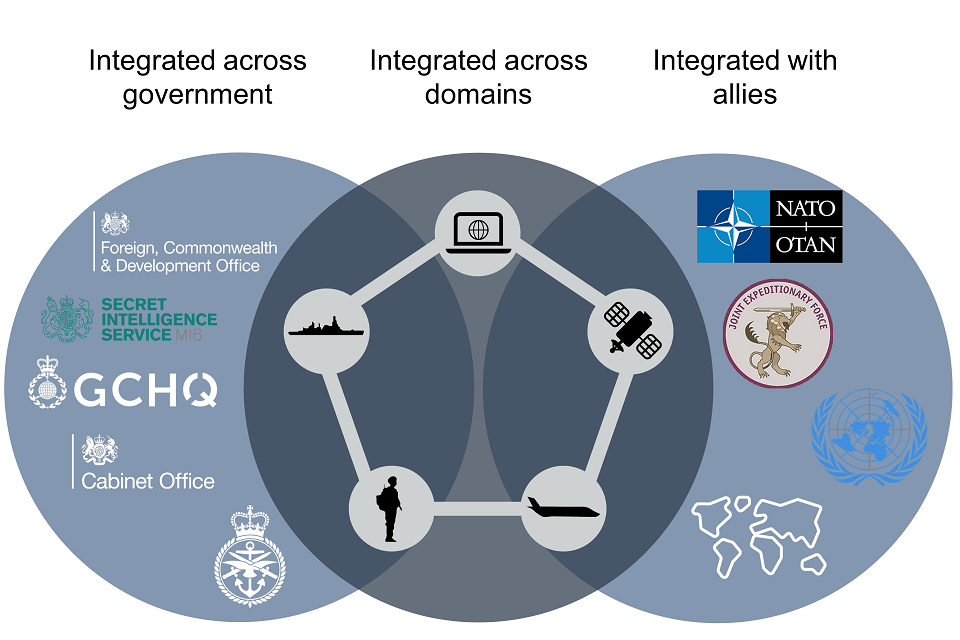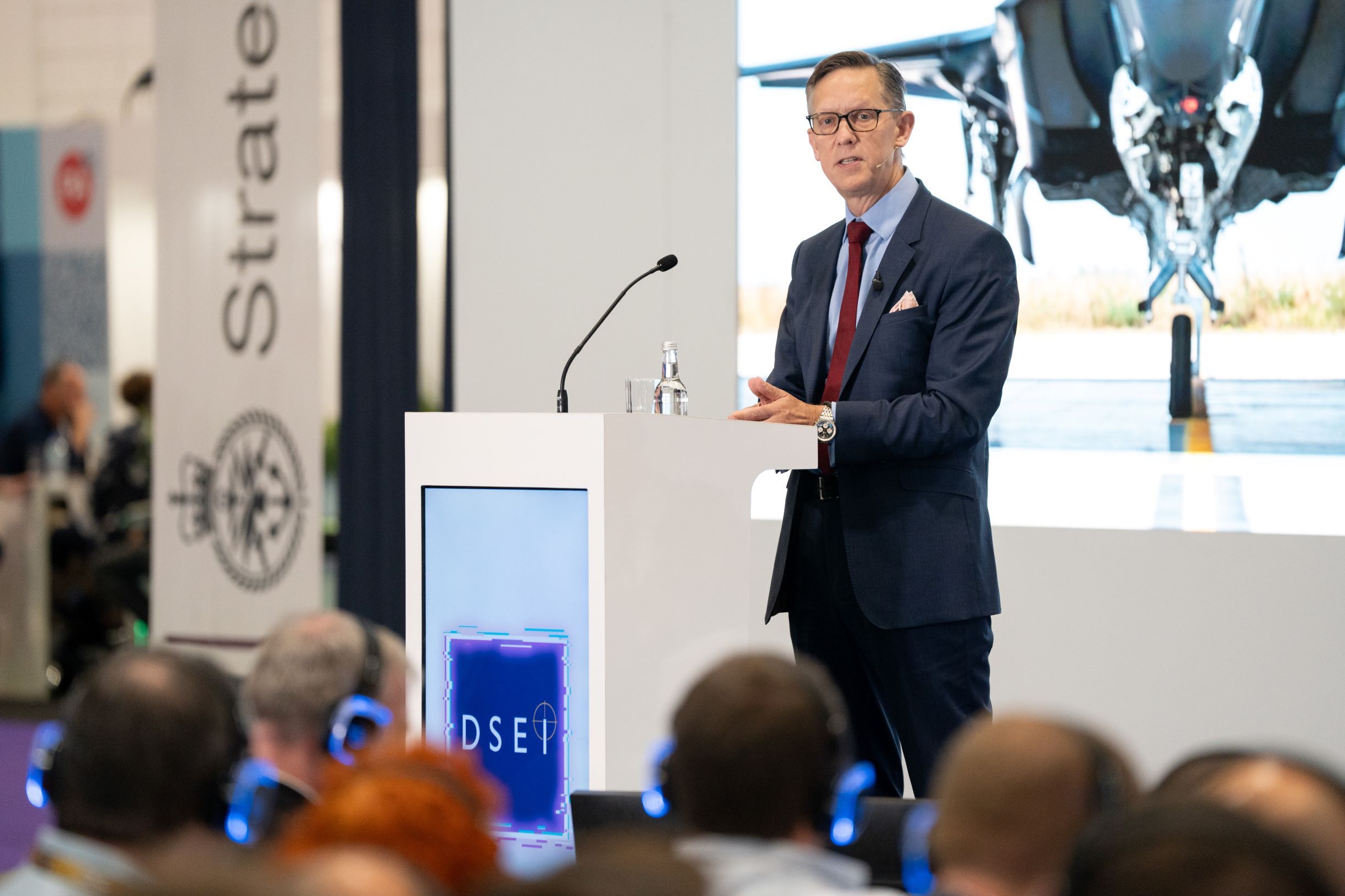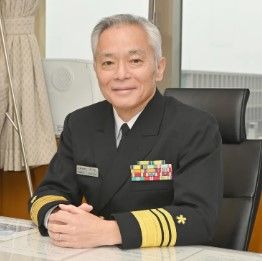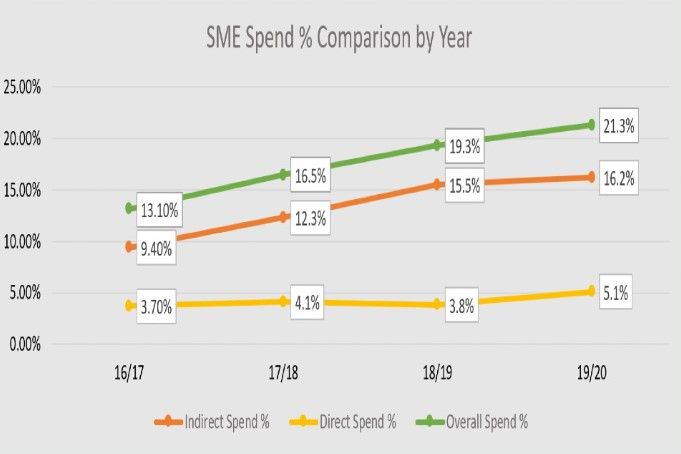DSEI 2023: Top 5 takeaways
.png/fit-in/1200x9999/filters:no_upscale())
DSEI is one of the world’s biggest defence and security events, with many thousands of visitors making their way to ExCel London to engage with industry, academia, and government. Pavilion on pavilion, nation on nation, DSEI represents a truly staggering proportion of the international defence and security sector. With a vast floorplan, featuring many forums that host a rich vein of speeches, talks, panels and demonstrations, the show has once again proven to be an unmissable event in the defence calendar.
Defence Engage's top 5 takeaways from DSEI 2023
- Achieving an integrated force
- Engaging more effectively with industry
- Collaborating internationally for a resilient global supply chain
- Developing and adopting emerging disruptive technologies
- Bringing small and medium sized enterprises (SMEs) to the table
1. Achieving an integrated force
This year's DSEI theme was created in tandem with the UK MOD's aims and aligned with the goals of international partners, all of whom seek to develop and maintain a strategic advantage through integrating government departments, defence assets, communications and capabilities. 'Achieving an integrated force' aims to support national objectives, collaborate with industry and international partners, and support NATO's 360-degree deterrence strategy via the embodiment of its Multi-Domain Operations Concept.
"We must reach the point where People, Places and Technology integration becomes endemic within our organisation", Kim Bond, Deputy Head of Strategy, Planning and Portfolio at UK Strategic Command (StratCom).
Multi-domain integration has long been an aspiration of policy-makers, strategists, defence-brass and NATO, as they seek to bring Air, Land, Sea, Space and Cyber into full alignment. Their strategy involves the harnessing of Capability, Development and Experimentation, and People and Culture. Capability integration regards the initiative for all defence assets to work together, to communicate effectively and seamlessly using large numbers of sensors, with high quantities of data being processed by AI and cloud computing. Development and Experimentation refers to the creation of military plans and processes which are to be 'integrated by design', rather than working with partners ad-hoc at the point of need.

Image source: UK Strategic Command Guidance on Multi-Domain Integration
Rear Admiral Washer CMgr FCMI, Director of Operations at Defence Digital, spoke of the need to harness both integration and digitalisation as part of efforts to secure networks and protect digital infrastructure. Alongside other speakers at StratCom’s breakfast briefings, Nick spoke of the MOD’s new Integrated Global Defence Network and how technology will be a key factor in driving multi-domain integration that aids interoperability within government and with allies.
2. Engaging more effectively with industry
From updating supply chain requirements more regularly, to increasing the dialogue on the speed, cost and development of capabilities, many speakers at DSEI 2023 spoke of the need to go further and faster when it comes to engaging with industry to solve the challenges defence faces.
"The critical relationship to get right is with industry. We cannot expect industry to innovate or perhaps take more risk if they don't know that there is a need", Toni Gray, Director of Equipment Support Programmes, Royal Navy.
Admiral Sir Keith E Blount KCB OBE, Deputy Supreme Allied Commander Europe (DSACEUR) for NATO, spoke at DSEI about the shifting strategic context in 2023 and the need to bring industry into the fold. This comes at a time when NATO has significant industry requirements for the development of emerging and disruptive technology, as sought through its new DIANA centres. "We need to get closer to industry. Industry is a fundamental partner of the alliance and this is an area we collectively can improve upon. Constructing new relationships and building on old ones. We have to develop an interoperability continuum to help keep up with requirements".

Andy Start, CEO, Defence Equipment & Supply, UK MOD. Source: Defence Equipment and Supply.
"If we are going to harness the ideas of industry we need you in the room. Every 6 months our requirements pipeline should be updated, with 487 procurements open right now for industry to get involved in", Andy Start, CEO, Defence Equipment & Supply, UK MOD.
3. Collaborating internationally for a resilient global supply chain
Throughout DSEI we heard from academics, global militaries and politicians about the need for more international collaboration around defence. Following the Russian invasion of Ukraine, over-reliance in supply chains is under a spotlight for the threat it can pose, meaning that opportunities to diversify sources of imports amongst allies are significant. Multilateral development programmes such as AUKUS and GCAP can also play a role in maintaining strategic edge whilst drawing upon the supply chains of multiple partners.
"Above all, we will look beyond the mere the transactional. The nations I speak to are asking for deeper, more meaningful bilateral partnerships. Partnerships that support capabilities through life and help develop smarter and leaner industrial bases in key regions. Defence Partnerships will be nation-to-nation, with exports at their core but they will use this foundation of trust to bolster bilateral collaboration whether beefing up joint industrial capacity, integrating supply chains or cooperating more closely on critical mineral access", James Cartlidge MP, Minister for Defence Procurement, UK.

Vice Admiral IMAYOSHI Shinichi, Director General, Naval Systems, ATLA, Japan. Source: ATLA
"The GCAP programme is our first joint development with likeminded partners outside the US, representing Japan's openness to the international community. Every day we realise the importance of resilience and sustainabilities – a widely shared notion amongst allies – it is important to improve interoperability amongst partners to achieve this. The key is to boost supply cooperation through the joint development and production of defence equipment", Vice Admiral IMAYOSHI Shinichi, Director General, Naval Systems, Acquisition Technology Logistics Agency (ATLA), Japan.
4. Developing and adopting emerging disruptive technologies
Emerging disruptive technologies (EDTs) are the cornerstone of tomorrow's operational advantage. Competition between adversaries and allies is being turbo-charged in areas such as quantum, AI, autonomous systems, hypersonics, space, novel materials and manufacturing, biotechnology and human enhancement, energy and propulsion, and next-generation communications networks. At DSEI, the research, development and deployment of these technologies was a constant theme, as industry seeks to fulfil the requirements of NATO's 2022 Strategic Concept in tandem with its 2030 Agenda.
Other allies, including those outside of NATO, are also seeking to develop their own engines of innovation for EDTs. During an impressive demonstration of Israel's Iron Dome on day 1 of DSEI, Brigadier General Dr Gold, Head of DDR&D, Ministry of National Security, Israel, spoke of how "emerging technology R&D is the key focus, from swarming drones to bio-convergence and cyber, these innovations are coming from commercial innovations (often from SMEs)" and "dual-use is really key".
.png)
Dr Gold, Head of DDR&D, Ministry of National Security, Israel.
In June, following some major constitutional changes in Japanese posture towards defence, ATLA (Acquisition, Technology & Logistics Agency) published new guidelines on both conventional and emerging technologies, with a new commitment to strengthening international networks to share research and cooperate, this was outlined by Vice Admiral IMAYOSHI Shinichi in his talk at DSEI's StratCom Forum.
EDT's are being developed and deployed rapidly in Ukraine, pushing allies to prioritise speed over sophistication. "To respond to the pace of change we’re seeing in Ukraine, where new technologies are being adapted in a matter of weeks, we’re going to need this sort of innovation. Sourcing the £100 solutions that can stop the £100 million threats in its track. Exploiting novel technologies", James Cartlidge MP, Minister for Defence Procurement, UK.
5. Bringing small and medium sized enterprises (SMEs) to the table
SMEs are responsible for a huge amount of job creation, they are fast-moving, more adaptable and can be powerful hot-beds of innovation. SMEs support local growth, development, competition and entrepreneurship, whilst generating huge export potential which helps cultivate supply-chain resilience and diversity. Many allies have targets for percentage spend with SMEs, with the UK MOD setting itself a target of 25% for 2023.
"We must do more to tap into our SME talent base... [and following the release of the refreshed Defence Command Paper] we are identifying the sub-contractors and SMEs that are of strategic importance to Defence and bringing them closer into the fold", James Cartlidge MP, Minister for Defence Procurement, UK.

Image source: UK MOD SME Action Plan
"It has been an issue that SMEs in both countries [the UK and Japan] do not possess sufficient information for points of contact or business descriptions – therefore opportunities for UK and Japan to learn about each others' SMEs and problems. Primes from each could learn about each others' SMEs – expanding and making the supply chain resilient", Vice Admiral IMAYOSHI Shinichi, Director General, Naval Systems, ATLA, Japan.
"SMEs want the respect they deserve. We must bring subcontractors important to defence and bring them into the fold. A variety of new initiatives will bring SMEs to the table. We are going to support small and large by going big on exports", Colonel Briggs, Senior Army Advisor, UK Defence and Security Exports.
Defence Engage hosted a variety of sponsored content, networking, matchmaking opportunities and more at DSEI 2023. Our stand was awash with suppliers and buyers looking to connect in defence, through our secure defence-tailored network.

